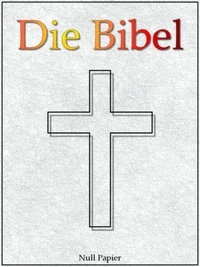In "The Ninety-five Theses, " Martin Luther presents a seminal document that ignited the Protestant Reformation and fundamentally altered the course of Western Christianity. Composed in 1517, this manifesto critiques the Catholic Church's practices, particularly the sale of indulgences, and argues for a return to scriptural authority and faith-based salvation. Luther's direct, polemical style elevates theological discourse to the public sphere, utilizing accessible language that resonates with the layperson while challenging ecclesiastical corruption.
This work is not merely a list of grievances but a radical rethinking of spiritual and ecclesiastical power, making it a cornerstone of Reformation literature and a hallmark of early modern thought. Martin Luther (1483-1546) was a German monk, theologian, and seminal figure of the Reformation, whose personal struggle for salvation and moral integrity led him to challenge the prevailing doctrines of the Church.
His experiences within the monastic system and his profound engagement with biblical texts catalyzed his critical insights, fostering a commitment to individual faith and interpretation. This transformative period in his life birthed the The Theses, which sought not only to reform the Church but also to liberate believers from ecclesiastical authoritarianism. For readers interested in the dynamics of faith, power, and reformative thought, "The Ninety-five Theses" remains a crucial text.
It not only contextualizes the tensions of the 16th century but also invites contemporary readers to reflect on their own beliefs regarding authority and spirituality, making it essential for a deeper understanding of religious history and theological evolution.
In "The Ninety-five Theses, " Martin Luther presents a seminal document that ignited the Protestant Reformation and fundamentally altered the course of Western Christianity. Composed in 1517, this manifesto critiques the Catholic Church's practices, particularly the sale of indulgences, and argues for a return to scriptural authority and faith-based salvation. Luther's direct, polemical style elevates theological discourse to the public sphere, utilizing accessible language that resonates with the layperson while challenging ecclesiastical corruption.
This work is not merely a list of grievances but a radical rethinking of spiritual and ecclesiastical power, making it a cornerstone of Reformation literature and a hallmark of early modern thought. Martin Luther (1483-1546) was a German monk, theologian, and seminal figure of the Reformation, whose personal struggle for salvation and moral integrity led him to challenge the prevailing doctrines of the Church.
His experiences within the monastic system and his profound engagement with biblical texts catalyzed his critical insights, fostering a commitment to individual faith and interpretation. This transformative period in his life birthed the The Theses, which sought not only to reform the Church but also to liberate believers from ecclesiastical authoritarianism. For readers interested in the dynamics of faith, power, and reformative thought, "The Ninety-five Theses" remains a crucial text.
It not only contextualizes the tensions of the 16th century but also invites contemporary readers to reflect on their own beliefs regarding authority and spirituality, making it essential for a deeper understanding of religious history and theological evolution.

 , qui est-ce ?
, qui est-ce ?